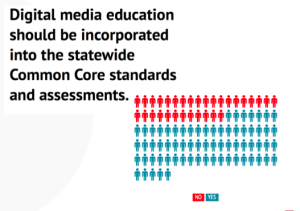KoMarketing Managing Partner and Director of SEO & Social Media Strategies, Derek Edmond, spoke with Suzanne McDonald about developing a new media certificate program at URI. Edmond discussed KoMarketing, what they look for when hiring employees, and what the certificate should include. Most local businesses have a group of “regulars”, especially when it comes to businesses like Beauty Shops. The nature of this industry is ideal. Hair continues to grow, people continue to need haircuts and it can be a very profitable enterprise. Hair expert salon marketing it will be hard to grow your local beauty shop and build your clientele. Local online marketing for hair salons builds a powerful presence in search engines and is one of the most cost effective marketing plans you can put into action and see the fastest results. If you are just starting to set up a shop you will need to do something to attract clients to your establishment. Most beauty salons with large client bases have been in business for a long time building up reputation through either a chain or by publicity of use from elitists, such as movies stars or famous musicians. In order to compete with these businesses, you have to be easily found on page 1 when people search for a salon in their area in Google. The first step in working with your company is to find out if your website is mobile friendly or responsive in order to obtain good visibility to patients looking for your services. In 2017, clinics with non-responsive websites are losing potential new clients and leaving to visit other clinic websites. Not having your esthetican website optimized for people to get in touch will make you lose a well-qualified local lead that is looking for your services. If needed we will design a website that has unique authoritative content about your specific procedures and industry.
Our goal when creating websites in not only provide valuable information to web visitors, but to also tell search engines like Google, Bing, and Yahoo that your company is the authority in your niche. Need help with the Elementor page builder for your business? Check this site out. Having the right website structure will help get good visibility for your market and help your site rank higher for your target terms or profitable keywords. The websites we build will show your hard earned reviews from Google, Yelp, and Facebook. We will also link to all your social media profiles like Facebook, Google, YouTube, and embed any company video you might have. When designing a website we use the latest search engine optimization strategies to give your business website the best opportunities to get more views, visits, and engagement. Additionally, we will create a blog to help with content marketing and start to inform readers about the services your provide.
KoMarketing and Derek Edmond
KoMarketing is a Boston-based company that helps clients improve their online marketing techniques in the B2B (business to business) space. The agency focuses on search engine marketing and social marketing, basing campaigns on quality content.
KoMarketing as of now has 14 full-time professionals and about half a dozen part-time or contracted positions, according to Edmond, who said as the company’s client base grows, so will its need for new employees.
According to Edmond, it could be arguably called “content marketing because we create content that is designed to either get our clients visibility in search engines, or allow us to engage in social media, one or the other. Or drive leads through both of those channels.”
Edmond has been working in social media marketing for 12 years, and has his MBA from Suffolk University, and a B.S. in Financial Economics from Buffalo State College in New York.
Suggestions for students seeking communications or marketing jobs
Edmond had some suggestions for learning strategies that might help engage students and help make the lessons last beyond learning platforms that will die out long before these students’ careers are over. He recommended using case studies, so students learn the techniques of how to deal with a problem more generally rather than only the tools on a specific platform.
He also recommended consulting experts in particular fields, such as one for SEO and one for third-party publishing, to help the students learn from professionals in the field, make networking connections, and learn a broad scope of techniques.
Edmond suggested students should also focuses on:
- Branding
- Reputation management
- Broad communication strategies
- Crisis management
- Measurement
What does KoMarketing look for in potential employees?
“We bring in a lot of people who are going to be both creative and analytical, which sometimes is difficult to combine,” said Edmond. He said the company also looks for creativity, examples of work that they’ve done successfully, and applicants who are able to distinguish themselves from the hundreds of other applications they receive.
Additionally, creativity, hard work, and attention-to-detail are traits that the company looks for in its employees. “You really have to enjoy what you’re doing,” he added, because the job is more demanding on time than other jobs may be, since it requires you to keep up with the constantly changing social media platforms. “So another obvious thing is the desire to always want to learn,” he said.
Edmond added that it might be a good idea to do some pro-bono work for local organizations or friends to build an impressive resume and portfolio and stand out.

